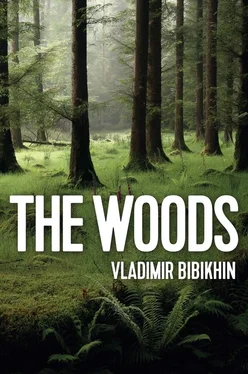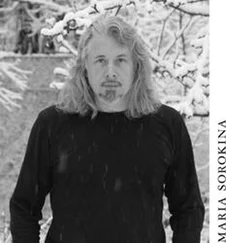1 ...8 9 10 12 13 14 ...31 What was the faith of this individual? ‘Primitive.’ The same as Michel Foucault describes in a child, a lunatic, or a poet. 17There can be no end to replies of that kind, where we say much more than we have any business saying, more than is sensible or necessary. In attempting to answer the question, we will do better to behave like good phenomenologists and make notes and take readings of what we can see here and now.
And where does that leave us? Let us suppose someone believes in God. They go to church and profess their faith, but they can see within themselves a different faith. I invite you to look, and to see that all of us live believing in two faiths. In just the same way that, without being able to step outside the consciousness in which we live, we can easily feel our closeness to that other one, the forest dweller, with his primaeval consciousness which is no different from ours in content. The Fathers of the Church see the Church as beginning with Abel. The Roman Catholic theologian Bernhard Welte always associated the Abel of the Bible with the people who inhabited caves of volcanic origin on the Mount of Olives near Cologne 10,000 years ago. Is there anything we can know about their worship of God? Welte felt himself in a eucharistic communion with those cave dwellers. How is that possible if theirs was a different faith? Or can we indeed talk about a faith we share with cave dwellers from 10,000 years ago? 18
St Paul invites us to recognize Abel’s sacrifice as coming from unshakeable faith (Hebrews, 11: 4). St John Chrysostom, interpreting chapter 4 of the Book of Genesis, speaks of the right disposition of Abel’s heart, compared with that of Cain. Cain’s countenance fell because God did not respect his gift. ‘And the Lord said unto Cain, “Why art thou wroth? and why is thy countenance fallen? If thou doest well, shalt thou not be accepted? and if thou doest not well, sin lieth at the door.”’ This is already a matter not solely to do with the offering of sacrifices; it concerns any act a person may perform. This can be a good deed, the person ‘raises their countenance’ and God looks upon them in response; or the promptings of their heart can go awry, the person’s countenance becomes dark, confused, their eyes look downwards, and they become a prey to loneliness and are accursed. It is up to individuals to desire an open countenance for themselves and to be afraid of a fallen countenance, or to suppress that fear, as Cain suppressed the fear of his own disgruntlement and envy, and cast aside his concern about what the commentators call his ‘inner disposition’.
We can imagine a person, a child, the hairy human, without this concern to retain their portion, to stay with God, not to be bereft, not to fall from his favour; or, if they already have, not to be a prey to anxiety about that fall, to be without irritation or envy, in a state halfway between, on the one hand, the raised face and open expression, and, on the other, that other state of degeneracy. We can imagine them vacillating between Cain, who was spurned, and Abel, who cheerfully raises his countenance and meets the gaze of God.
I want now to introduce a word I have avoided so far: the law of human beings or of human nature. It is a law without limitation, fundamental, and in fact the only law, because in everything else people are unbounded and free. For every person, no matter how they frame their faith, in any situation and condition and age, this is concern about their portion, concern in the sense of Heidegger’s Sorge, their concern in terms of being endowed not dispossessed, of living in prosperity rather than wretchedness, and if in poverty, then in that ascetic poverty that is better than any prosperity. 19
We are completely unable to read or articulate this law of concern, of ɛύλἀβɛια, of right thought and piety, of God-fearing. It is probably operating before we have found any definition of it. Before we have any awareness of it, it is leading us, suggesting how we should act. Everything we do, we do in obedience to it. Can we privately choose not to conform to it? No, it only seems that it can be resisted. It can neither be rescinded nor made more lenient, although the approach of Cain is open to us, to declare, ‘Then so be it: the worse, the better.’ Our freedom here extends no further than to be or not to be in a place where we already are. It is only by recognizing this level of the universal law of human nature that religion can be understood.
Religion will always be found, within its culture, language, and way of life, to be a restoration of that unwritten law, of instinct. Religion is in its essence that same law. Religious discourse is consequently a matter of only secondary importance.
The instinct of piety, the need, second by second, to choose Abel, and the ever-present threat of Cain, is an innate law, and the word ‘law’ needs to have this meaning restored to it. Discriminating between secular and religious law, between civil law and canon law, is essential if the initial law is to remain unsullied. These two parallel systems of law, the secular and the divine, are complementary ways of capturing something it is impossibly difficult to formulate. Sharia and, in Orthodox Christianity, Palamism seek to be the unmediated expression of a single law and hence put the original law at greater risk. 20
Having recourse to another of our mental experiments, one has no sense that in any ancient forest and/or hairy incarnation humans could ever have been formed without being creatures of the law of which I am speaking. It preserves the human species. That law is something that restrains us every moment.
Religion: the etymology of the word speaks, I believe, of mindfulness, concern, and piety, and it was formerly known as the Rule. Let us now rehabilitate this old word, whose primary meaning until quite recently, some 300 years ago, was ‘faith, the profession of faith’.
Why do we so formally and superficially call the law of humankind ‘ɛὐλἀβɛια’, a cautious, attentive acumen? Because humans are open, their nature is freedom, and because what people are primarily dealing with, both in themselves and in the world, is indefinable: it is the forest. The forest, an abyss, the forest unexplored and indefinable, the forest that we find again in tobacco (you may recall the ritual tobacco, much stronger than ours, of the American Indians).
The law we have been talking about will need to be compared with Kant’s categorical imperative. I repeat, because for humans there is no other law; because they are faced with substances in which they drown. Matter as the power of the forest, the potency of its materiality: the smoke of tobacco, the wine of Bacchus, narcotics, intoxication, ecstasy. The wood of the forest is the matter from which all else derives; it is not the timber of the carpenter but like passion, the race, the grove of Aphrodite, the smoke, the aroma of tobacco, the inebriation of Bacchus, of Dionysos, the intoxication of coca. The forest, then, is conflagration, the fire of passion. When Aristotle gave primal matter the name of ‘wood’, this was the forest he saw before him, the forest as we shall yet see it.
The lecture course on Wood (Hyle) was delivered in the Philosophy Faculty of Moscow State University in 1997–8. This publication has been prepared from the surviving notes. I wish to thank everyone who has helped me prepare the text of the lectures for publication: Konstantin Chamorovskii, Anatolii Akhutin, Aleksandr Mikhailovskii, Egor Ovcharenko, Vardan Airapetian, Vladimir Gurkin, Ol’ga Sedakova, and El’fira Sagetdinova. [ O.E. Lebedeva ]
1 1. See Vladimir Bibikhin, Vitgenshtein: smena aspekta (Moscow: IFTI sv. Fomy, 2005). [Russian editors]
Читать дальше












